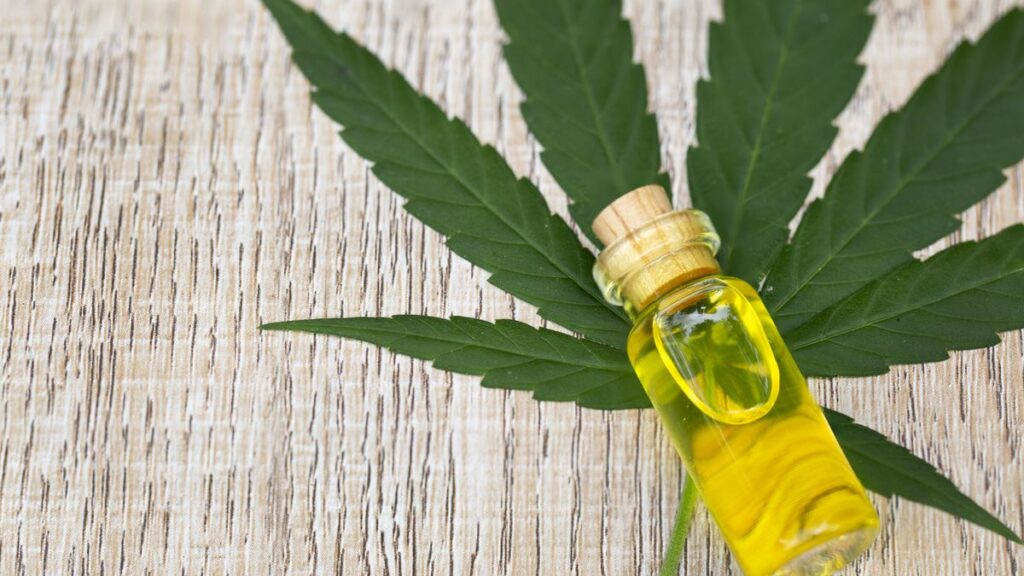Introduction
In recent years, CBD has garnered widespread attention for its potential therapeutic benefits, particularly in the realm of mental health. Let’s delve deeper into the relationship between CBD and mental well-being, exploring its mechanisms of action, potential benefits, and considerations for use.
Understanding CBD and its Effects

CBD, or cannabidiol, is a non-intoxicating compound found in the cannabis plant. Unlike its counterpart THC, CBD does not produce the euphoric “high” typically associated with cannabis consumption. Instead, CBD interacts with the body’s endocannabinoid system, a complex network of receptors and neurotransmitters involved in regulating various physiological processes.
- CBD acts upon the endocannabinoid system by interacting with cannabinoid receptors located throughout the body, including the central nervous system. By modulating neurotransmitter activity, CBD may exert anxiolytic, antidepressant, and neuroprotective effects.
- Research suggests that CBD may enhance the availability of serotonin, a neurotransmitter known for its role in regulating mood and emotional well-being. By promoting serotonin signaling, CBD may help alleviate symptoms of anxiety and depression.
- Additionally, CBD has been shown to modulate the activity of gamma-aminobutyric acid (GABA) receptors, which play a crucial role in inhibiting neuronal excitability. By enhancing GABAergic transmission, CBD may exert calming and anti-anxiety effects, promoting a sense of relaxation and tranquility.
Also Read: Recover Faster, Train Harder: The Impact of CBD on Speeding Up Exercise Recovery
The Potential Benefits of CBD for Mental Health
CBD has emerged as a promising adjunctive therapy for various mental health conditions, offering a natural alternative to traditional pharmacological interventions. Let’s explore some of the potential benefits of CBD for mental well-being:
- Anxiety Relief: Several studies have highlighted CBD’s anxiolytic properties, suggesting that it may help reduce symptoms of anxiety disorders, such as generalized anxiety disorder (GAD), social anxiety disorder (SAD), and post-traumatic stress disorder (PTSD). CBD’s calming effects may help alleviate feelings of nervousness, tension, and apprehension, promoting a greater sense of calm and relaxation.
- Depression Management: Preliminary research suggests that CBD may hold promise as an adjunctive treatment for depression. By modulating neurotransmitter activity and promoting neurogenesis (the formation of new neurons), CBD may help regulate mood and mitigate depressive symptoms. While further research is needed to elucidate CBD’s precise mechanisms of action in depression, anecdotal reports and preclinical studies offer encouraging insights into its potential efficacy.
- Stress Reduction: Chronic stress can take a toll on mental and emotional well-being, contributing to anxiety, depression, and other mood disorders. CBD’s ability to modulate the stress response and promote relaxation may offer relief for individuals grappling with chronic stress and tension. Whether consumed orally, topically, or via inhalation, CBD products can help mitigate the physiological and psychological effects of stress, fostering a greater sense of balance and equanimity.
Considerations for CBD Use in Mental Health
While CBD shows promise as a natural remedy for mental health conditions, it’s essential to approach its use mindfully and judiciously. Here are some considerations to keep in mind:
- Dosage: CBD dosing can vary significantly depending on individual factors such as body weight, metabolism, and the severity of symptoms. Start with a low dose and gradually titrate upwards until you achieve the desired therapeutic effect. It’s advisable to consult with a healthcare professional experienced in cannabinoid therapy to determine the optimal dosage for your specific needs.
- Quality and Purity: When selecting CBD products, prioritize quality and purity. Look for products that undergo rigorous third-party testing for potency, purity, and contaminants. Opt for organic, full-spectrum CBD extracts whenever possible, as they contain a diverse array of cannabinoids, terpenes, and other beneficial compounds that work synergistically to enhance therapeutic efficacy.
- Potential Interactions: CBD may interact with certain medications, particularly those metabolized by the cytochrome P450 enzyme system. If you’re taking prescription medications, consult with your healthcare provider before incorporating CBD into your regimen to avoid potential drug interactions or adverse effects.
- Legal Considerations: While hemp-derived CBD products containing less than 0.3% THC are federally legal in the United States, state laws regarding CBD vary. Familiarize yourself with local regulations governing the sale, possession, and use of CBD products in your area to ensure compliance with applicable laws.
Conclusion
As our understanding of CBD’s therapeutic potential continues to evolve, so too does its role in mental health care. While further research is needed to elucidate CBD’s precise mechanisms of action and therapeutic efficacy, preliminary evidence suggests that it holds promise as a safe and effective adjunctive therapy for anxiety, depression, and stress-related disorders. By exploring CBD’s benefits and considerations for use, individuals can make informed decisions about incorporating this natural remedy into their mental health regimen.